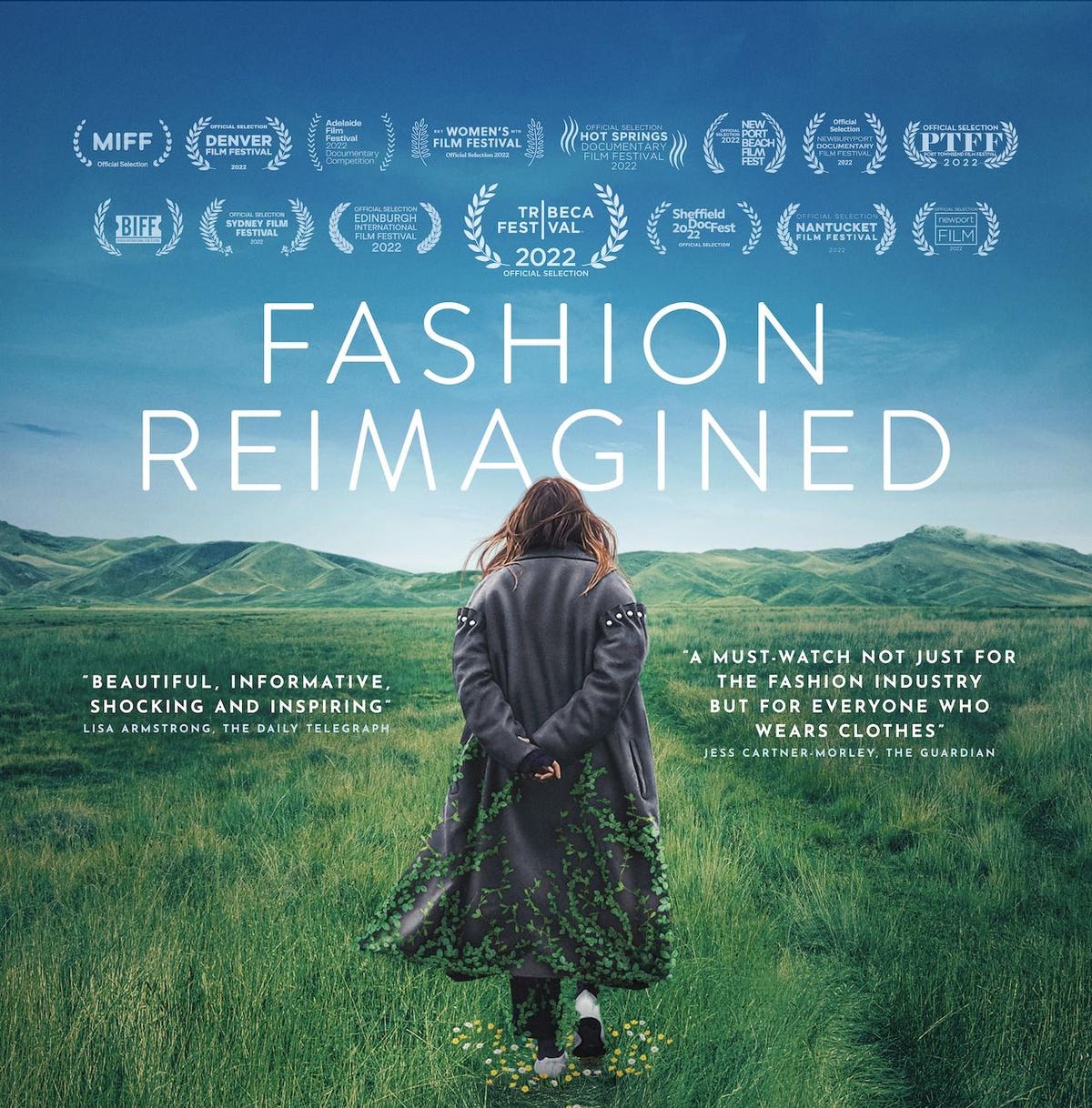A new film being released in the U.S. on Tuesday focuses on the issue of sustainability in fashion.
According to the film, here is the problem:
- If the worldwide fashion industry was a country, it would be number three in carbon emissions behind China and the U.S.
- 100 billion garments are produced every 12 months and 60% of them wind up in a landfill before they’re one year old.
- 2% of the people who make clothing in the world earn a living wage.
- It takes one tree 40 years to absorb as much CO2 that is emitted in the production of one white dress shirt (that also uses 17 bathtubs of water and uses 72 hazardous chemicals).
- More than 1/3 of the microplastic in the ocean comes from synthetic apparel fibers that are shed in washing machines.
- At any moment, 50% of the people in the world are wearing denim. Traditional denim manufacturing uses 1500 litres of water for each pair, equal to the drinking water of one person for two years.
The film follows an English fashion designer, Amy Powney of the brand Mother of Pearl, in her quest to take the $140,000 she won from the BFC/Vogue Designer Fashion Fund in 2017 and use it to create a truly sustainable fashion collection she named ‘No Frills.’
As Powney explained her thinking to me, “I can’t create something to make one woman feel incredible to the detriment of the people in my supply chain.”
Here’s the trailer:
The problem was, no one had ever done it, there was no standard. No one could even say what sustainable really meant, let alone how to do it. Powney found that the world of fashion and its supply chain was not organized to answer the question of whether the raw materials and the processes were sustainable or not, she had to travel around the world to figure out what worked and what didn’t.
She wound up turning the process on its head by starting not with her design but with finding out what could be made in the most sustainable way.
The fundamental problem Powney and the industry face was put most succinctly by an anonymous store buyer in the film. Referring as most retailers do to fashion consumers as “she,” the buyer said, “The price goes up because it’s sustainable but she’s not willing to pay for it. She’s not thinking, ‘this will last longer, this is better for the world, it’s ok to spend a little more on it,’ I don’t think she gets that.”
And after her yearlong journey to produce a pair of jeans that uses less water and less chemicals, the Shopbop (owned by Amazon
AMZN
The film tries to be hopeful. It shows what has happened since Powney’s first sustainable line came out and the way in which the big brands are starting to move in her direction. The producer of the sustainable wool in the film, a Uruguayan farmer, puts it well. “We cannot do everything but we can put our grain of sand in.”
The film avoids ending on a negative note. But there’s a lot to be pessimistic about when it comes to sustainability and fashion and how hard it will be to convert an industry organized to minimize cost.
About the future of sustainability and fashion, Powney told me, “the more you learn how the world works the more you learn how far we are from where we’re supposed to be. People think it’s a quick fix and then we’re all good. But for me, what I’ve learned is that an entirely new approach to business of a circular model is needed, the systems we work in don’t work for the planet.”
The worldwide fashion industry is $1.7 trillion. It is highly focused on efficiency and reducing costs. Change will take at least decades and will need to become the focus of multiple cultures and governments, something we have not seen.
The driving force has to come from consumers and voters. Until they are willing to pay some price in either money or convenience, the industry will continue on the path it’s on where true sustainability is a fringe effort. That’s not to say it can never happen, things change and attitudes change, it’s possible. But we’re a long way from there and while one designer can be a spark and a great story for a film, we are not near the tipping point for sustainability in the fashion industry.
The film, Fashion Reimagined, will be available for streaming starting Tuesday on Amazon, AppleTV, Google Play, Vudu and other streaming services.
Read the full article here





